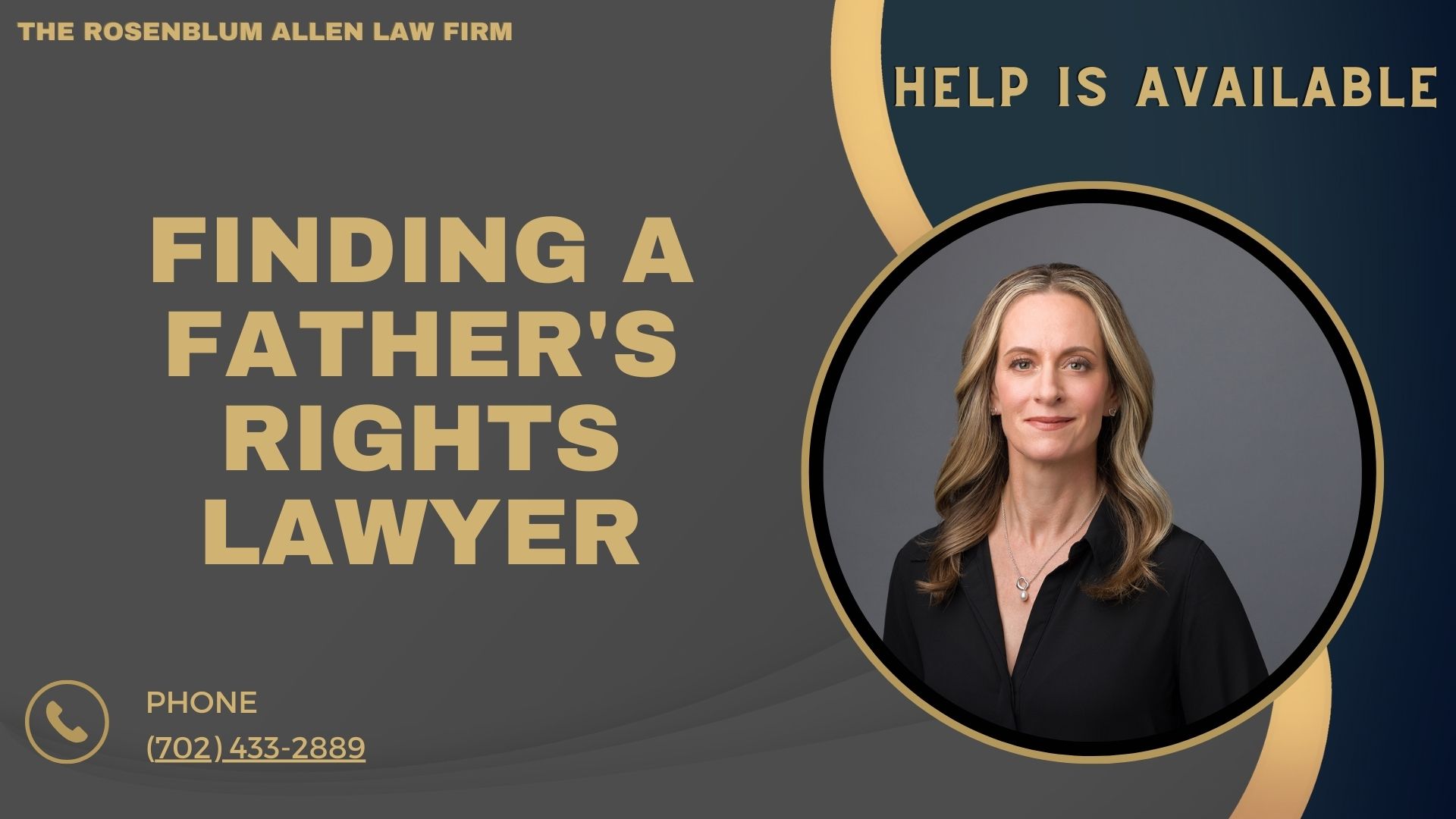Father’s rights are vital for maintaining strong, healthy relationships with their children. Legal support protects these rights, especially during custody disputes and other family law matters. This guide will help you understand why father’s rights are essential, why you need a lawyer, what qualities to look for in a lawyer, and more.
Understanding Father’s Rights
Definition of Father’s Rights
Father’s rights refer to a father’s legal entitlements and responsibilities for his children. These include:
- Legal Paternity: Establishing the legal recognition of a man as a child’s father.
- Custody and Visitation: Rights to live with or spend time with the child.
- Decision-Making Rights: Participating in important decisions about the child’s upbringing, such as education, healthcare, and religious instruction.
Importance of Father’s Rights
Father’s rights are crucial for several reasons:
- Emotional and Psychological Benefits: A robust father-child relationship improves the child’s emotional stability and overall development.
- Legal and Financial Implications: Father’s rights can affect child support arrangements, inheritance rights, and other financial matters.

Why You Need a Father’s Rights Lawyer in Las Vegas
Complexities of Family Law
Family law is intricate and varies significantly by jurisdiction. A father’s rights lawyer can help navigate these complexities:
- Understanding Nevada Family Law: Knowledge of specific state laws and how they apply to your situation.
- Navigating the Legal System: Guidance through court procedures, paperwork, and legal requirements.
Protecting Your Rights
A lawyer ensures that your rights as a father are protected throughout the legal process:
- Ensuring Fair Custody Arrangements: Advocating for equitable custody and visitation schedules.
- Securing Visitation Rights: Ensuring you have regular, meaningful contact with your child.
Legal Representation in Court
Having a lawyer can make a significant difference in court:
- Preparing for Court Proceedings: Gathering evidence, witnesses, and necessary documentation.
- Representation during Hearings and Trials: Present your case effectively before a judge.

Qualities to Look for in a Las Vegas Father’s Rights Lawyer
Experience and Specialization
When choosing a lawyer, consider their experience and focus:
- Years of Practice in Family Law: More experience often means better understanding and strategy.
- Specialization in Father’s Rights Cases: Specific expertise in handling cases similar to yours.
Track Record of Success
A lawyer’s past performance can be a good indicator of their capability:
- Case Studies and Client Testimonials: Success stories and positive feedback from previous clients.
- Success Rate in Similar Cases: High success rates in father’s rights cases.
Communication Skills
Effective communication is critical to an excellent lawyer-client relationship:
- Clarity and Transparency: Understandably explaining legal terms and processes.
- Availability and Responsiveness: Being accessible and prompt in responding to your concerns.
Legal Fees and Costs
Understanding the cost of legal services is essential:
- Understanding Fee Structures: Knowing how fees are calculated (hourly, flat rate, etc.).
- Comparing Costs Among Different Lawyers: Evaluating the cost-effectiveness of various options.

Common Issues Handled by Father’s Rights Lawyers
Paternity Disputes
Paternity disputes are common in family law. They involve determining or challenging the legal fatherhood of a child.
- Establishing Legal Paternity: This often requires genetic testing and legal paperwork. Establishing paternity can grant you rights to custody and visitation.
- Challenging Paternity Claims: If you believe you are not the biological father, a lawyer can help you challenge false claims and avoid unwarranted obligations.
Child Custody and Visitation
Child custody and visitation are critical aspects of a father’s rights. A lawyer can help ensure fair arrangements.
- Negotiating Custody Agreements: Lawyers can mediate to create a fair custody plan for both parents.
- Modifying Custody Arrangements: Changes in circumstances may require updates to custody agreements. A lawyer can assist with legal modifications.
Child Support Issues
Child support can be a contentious issue. A father’s rights lawyer ensures that support payments are fair and just.
- Calculating Fair Child Support: Lawyers use state guidelines to determine appropriate support amounts.
- Modifying Child Support Orders: If your financial situation changes, a lawyer can help modify the support order to reflect your new circumstances.
Parental Alienation
Parental alienation occurs when one parent manipulates a child to reject the other parent.
- Identifying Signs of Alienation: Common signs include negative comments about you from your child or your child being unusually distant.
- Legal Remedies for Parental Alienation: A lawyer can file for custody modifications or seek therapy for the child to address the issue.

Steps to Take When Seeking a Father’s Rights Lawyer
Initial Research
Finding the right lawyer starts with thorough research.
- Online Reviews and Ratings: Look for feedback on legal directories and review sites. Pay attention to comments about the lawyer’s effectiveness and communication skills.
- Recommendations from Friends and Family: Personal recommendations can provide trustworthy insights.
Initial Consultation
The first meeting with a lawyer is crucial.
- Preparing Questions for the Lawyer: Ask about their experience, approach, and fees. Make a list of your key concerns and goals.
- Assessing Compatibility and Comfort: Ensure you feel comfortable with the lawyer. Trust your instincts about whether they understand your needs and seem genuinely interested in helping.
Legal Documentation
Gathering and organizing your documents will help your lawyer build a strong case.
- Gathering Necessary Documents: Collect court orders, communication records, and financial documents.
- Organizing Your Case Information: Create a timeline of events and a summary of your case to help your lawyer understand the situation quickly.

What to Expect During the Legal Process
Initial Consultation
The legal process begins with an initial consultation.
- Discussing Your Case and Goals: Explain your situation and what you hope to achieve. Be honest and thorough.
- Understanding the Lawyer’s Approach: Learn how the lawyer plans to handle your case and what strategies they will use.
Case Preparation
Preparing your case involves several steps.
- Collecting Evidence and Documentation: Your lawyer will gather necessary documents, witness statements, and other evidence.
- Filing Legal Paperwork: Your lawyer will handle all the required filings with the court.
Court Proceedings
Court proceedings can be stressful, but your lawyer will guide you through.
- Mediation and Negotiation: Many cases are resolved through mediation, where both parties agree with the help of their lawyers.
- Trial and Court Hearings: If mediation fails, your case may go to trial. Your lawyer will represent you in court, presenting evidence and arguing.
Post-Judgment Modifications
Even after a judgment, circumstances can change.
- Adjusting Custody and Support Orders: Changes in income, relocation, or the child’s needs may require modifications to existing orders.
- Addressing Changes in Circumstances: Your lawyer can help you petition the court for these changes.

Resources and Support for Fathers in Las Vegas
Support Groups and Organizations
Local and national groups offer support and resources for fathers.
- Local Father’s Rights Groups: Groups like “Fathers for Equal Rights” provide community and advice.
- National Organizations and Resources: Organizations like the National Parents Organization advocate for shared parenting and provide educational resources.
Legal Aid and Pro Bono Services
Affordable legal services are available for those who qualify.
- Finding Free or Low-Cost Legal Help: Look for legal aid societies and pro bono programs in your area.
- Qualifying for Pro Bono Assistance: Eligibility often depends on income level and specific legal needs.

Breaking It All Down
Father’s rights are essential for maintaining a meaningful relationship with your child. Seeking legal support can make a significant difference in protecting these rights. Don’t hesitate to consult a father’s rights lawyer to help you navigate this challenging process and secure the best possible outcome for you and your child.

Frequently Asked Questions
What is the role of a father's rights lawyer?
A father’s rights lawyer specializes in protecting the legal rights of fathers in family law matters, such as custody, visitation, and child support. They help ensure fair treatment in court and advocate for the father’s best interests.
How can I find a reliable father's rights lawyer in Las Vegas?
You can find a reliable lawyer by researching online reviews, seeking recommendations from friends and family, and consulting legal directories. Initial consultations can also help you assess a lawyer’s suitability.
What should I bring to my first consultation with a father's rights lawyer?
Bring any relevant legal documents, such as court orders, communication records with the other parent, financial records, and a summary of your case. This helps the lawyer understand your situation quickly and provide accurate advice.
How long does it typically take to resolve a father's rights case?
The duration varies based on the complexity of the case and whether it goes to trial. Simple cases resolved through mediation can take a few months, while more complicated cases may take a year or longer.
Can a father's rights lawyer help with issues of parental alienation?
Yes, a father’s rights lawyer can help identify signs of parental alienation and seek legal remedies, such as custody modifications or court-ordered therapy for the child.
What if my ex-partner is not complying with custody or visitation orders?
A father’s rights lawyer can help you file a motion to enforce the court orders. The court can take various actions, including modifying the custody arrangement or imposing penalties on the non-compliant parent.
Is it possible to modify child support or custody orders after they are established?
Yes, if there are significant changes in circumstances, such as a change in income or relocation, you can petition the court to modify child support or custody orders. A lawyer can help you navigate this process.
How do father's rights differ from state to state?
Father’s rights can vary significantly by state due to differences in family law statutes and court practices. A local lawyer will be familiar with Nevada’s specific laws and how they apply to your case.
What are the costs associated with hiring a father's rights lawyer?
Costs vary depending on the lawyer’s experience, the complexity of the case, and whether it goes to trial. Some lawyers charge hourly rates, while others may offer flat fees for specific services. It’s important to discuss fees and payment structures during your initial consultation.
Can I represent myself in a father's rights case?
While you can represent yourself, it’s generally not advisable due to the complexities of family law. A lawyer’s expertise can significantly increase your chances of a favorable outcome.
What are some common misconceptions about father's rights?
Common misconceptions include the belief that courts always favor mothers in custody disputes and that fathers have fewer rights. In reality, courts aim to act in the best interest of the child, and fathers have the right to seek fair custody and visitation arrangements.

Additional Resources for You from The Rosenblum Allen Law Firm.
Our lead attorney, Molly Rosenblum Allen, Esq., has also created a range of resources to assist you in times of need. Here are some additional guides and articles that can provide valuable information:
- Las Vegas Custody Attorney: Comprehensive information on custody laws and how a custody attorney can help you in Las Vegas.
- Fathers Rights: Detailed insights into protecting and asserting your rights as a father.
- Supervised Visitation: Understanding supervised visitation and how it affects parenting time.
- Changing Custody Agreement: Guide to modifying custody agreements when circumstances change.
- Grandparents Rights Nevada: Information on the legal rights of grandparents in Nevada.
- Long Distance Co Parenting: Strategies for effective co-parenting across long distances.
- How a Mother Can Lose a Custody Battle: Factors that can negatively impact a mother’s custody case.
- Custody Battle Tips for Nevadans: Practical tips for navigating custody battles in Nevada.
- What Not To Say In Child Custody Mediation: Important advice on avoiding common mistakes during custody mediation.
- How Much is a Custody Lawyer: Cost considerations and factors influencing the fees of a custody lawyer.
- Types of Custody in Las Vegas: Explanation of different custody arrangements available in Las Vegas.
- Nevada Child Custody Laws: Overview of the child custody laws in Nevada and how they apply to your situation.
These resources are designed to provide you with the knowledge and support you need during challenging times. For personalized legal assistance, please contact our office to schedule a consultation.

Offsite Resources for You
American Bar Association: The ABA provides resources and information on various legal topics, including family law and father’s rights.
National Parents Organization: This organization advocates for shared parenting and provides support and resources for fathers.
Fathers’ Rights Movement: A movement dedicated to supporting fathers’ rights and providing information and advocacy.
Parents Without Partners: An organization offering support and resources for single parents, including those dealing with custody issues.
Child Welfare Information Gateway: Provides resources and information on child welfare topics, including custody and visitation.
National Responsible Fatherhood Clearinghouse: Offers resources and support for fathers looking to improve their parenting and strengthen family bonds.
National Family Solutions: Provides family law support services, including help with custody and visitation rights.

A Special Message from Our Lead Attorney, Molly Rosenblum Allen, Esq

Thank you for taking the time to read through our resources. I hope you found the information helpful and insightful. If you have any questions or need legal assistance, I invite you to call me and my team at (702) 433-2889. We’re here to help you get the ball rolling on your situation and provide the support you need.
Best regards,
Molly Rosenblum Allen, Esq.
The Rosenblum Allen Law Firm






